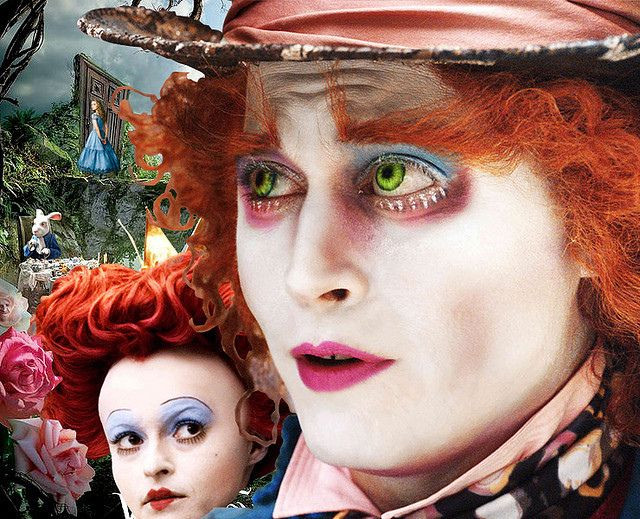'Alice In Wonderland' Elicits Different Response In People With Psychosis, Reveals How Patients Process Information

Recently, researchers found that individuals with psychosis had unique brain activity when viewing Tim Burton’s Alice in Wonderland. The finding suggests that those with psychosis physically process information differently than those without the condition and may give clues into methods of early diagnosis.
In a study recently presented at this week’s European College of Neuropsychopharmacology (ECNP) Congress in Amsterdam, a team of Finnish researchers used a 3-Tesla MRI to monitor the 46 first-episode psychotic patients (meaning they only ever had one psychotic event) and 32 healthy controls while watching the 2010 fantasy film. According to the press release, the researchers found that significant differences could be seen in the precuneus, the region of the brain associated with memory, visual spatial awareness, self-awareness, and aspects of consciousness. In fact, 80 percent of the time the researchers were able to accurately classify the patients as having psychosis or not by just looking at the brain scans.
“This is the first study which directly associates the beginnings of psychosis with the precuneus, so it is now important that much more research is done in this area,” lead researcher Dr. Eva Rikani explained in a statement.
Celso Arango, ECNP president, said researchers plan to investigate whether patients with psychosis might see this as relevant to their own life compared to healthy controls. “This movie is about a fantasy world,” he said, so “would it be different with other types of movies?”
Psychosis is actually an umbrella term used for those who temporarily lose touch with reality. Mental health conditions such as bipolar disorder, depression, and schizophrenia are often associated with psychotic symptoms such as delusions or hallucinations. Early intervention is a popular treatment used on those who are experiencing symptoms of psychosis for the first time. Unfortunately, the signs of early psychosis are particularly difficult to detect.
The findings of this study suggest that there may soon be an easier way to screen and diagnose at risk-populations. Those most at risk for developing the condition at some point in their lives include those who have a history of psychosis in their family. For example, according to Healthline, if one identical twin has psychosis, there is a 50 percent chance that the other twin will develop the condition as well. Alcohol and drugs can also induce some of the symptoms of psychosis and those who are addicted to these substances can experience psychotic symptoms if they suddenly quit. Head injuries, brain diseases, and a history of having night terrors are also known to cause symptoms of psychosis.
Source: Rikandi E, et al. Psychotic patients distinguished from controls while watching movie Alice in Wonderland. European College of Neuropsychopharmacology (ECNP) Congress. 2015.



























